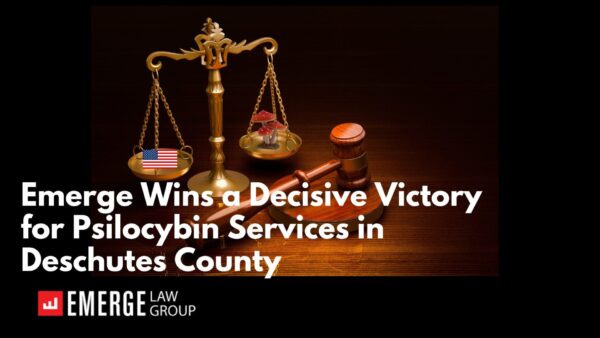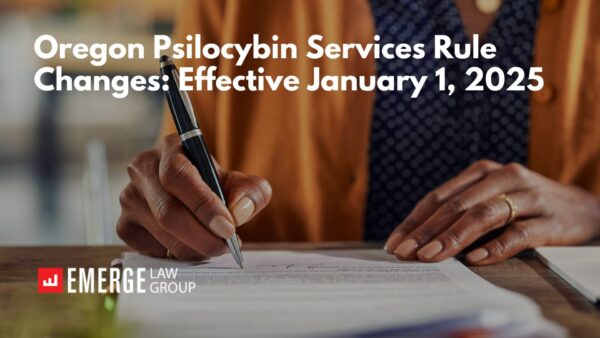The Oregon Liquor Control Commission (“OLCC”) has been busy over the last couple months working on new rule and policy updates in an effort to address the backlog of marijuana license applications, to speed up their processing timelines, and generally to increase efficiency. Such efforts have culminated in new application and financial interest disclosure requirements and the new Verification of Compliance (“VOC”) disciplinary policy.
New Financial Interest Disclosure Requirements.
Effective October 15, 2020, OLCC issued new rules and policy guidance regarding updated and less restrictive application and financial interest disclosure requirements summarized in Compliance Education Bulletin 2020-06. Key changes include:
• Definition of “applicant” revised to include only persons and entities: (1) with 20% direct or indirect ownership of the licensed business; (2) entitled to 20% or more revenue or profits from the licensed business; or (3) with “direct control” over the licensed business.
• For “applicant” entities, only the following individuals also considered “applicants”:
– Managers of a manager-managed LLC;
– Principal officers of a corporation;
– General partners of a limited partnership.
• Updated financial interest disclosure requirements:
– OLCC pre-approval is required before a financial interest is added if the business structure change amounts to a 51% or greater addition of new ownership interest(s) (*A new license application is also still required).
– OLCC notification (no pre-approval) is required before a financial interest is added for the addition or removal of any “applicant” entity or individual.
– OLCC notification is required within 60 days after a financial interest is added for a shareholder accumulating 20% or more stock of a publicly traded corporation or the addition or removal of a principal officer of a publicly traded corporation.
– No OLCC notification required for the addition or removal of any other financial interest-holder (e.g. individuals or entities with less than 20% ownership in the licensed business).
Note that OLCC retains discretion to request additional information and background checks for any financial interest-holder. Also, if OLCC finds an entity or individual who qualifies as an “applicant” or financial interest holder to be unlicensable, the licensee must remove that entity or individual or OLCC may propose to suspend or revoke the license. For complete details regarding the application and financial interest disclosure changes, click on the links provided above.
Verification of Compliance (“VOC”) Policy
Effective October 1, 2020, OLCC has implemented a new “VOC” enforcement policy for certain types of rule violations, detailed in Compliance Education Bulletin 2020-05. The policy gives OLCC inspectors discretion to provide VOC paperwork (similar to a traffic “fix-it-ticket”) that allows a licensee to avoid a formal rule violation and penalty if the licensee can demonstrate to the inspector that they have fixed the compliance issue within a certain period of time. Violation types subject to the VOC program include the following (so long as the violation can be “fixed” by the licensee):
• Video Recordings: 845-025-1450(2)(a)-(g), (k);
• Cameras: 845-025-1440;
• Seed-to-Sale Tracking w/ CTS: 845-025-7540 (1) and (2);
• Reconciliation w/ Inventory (CTS): 845-025-7580;
• Security Requirements: 845-025-1410; and
• UID Tags: 845-025-7520.
The full Compliance Education Bulletin 2020-05 contains complete explanation regarding the details of the VOC program.
Current Rulemaking
OLCC and the Oregon Health Authority (“OHA”) are each in the process of promulgating rule amendments. OLCC has initiated rulemaking to implement new rules regarding substances added to inhalable marijuana products – including non-cannabis-derived terpenes. The current draft of the rule amendments that OLCC is considering can be found here.
OHA has initiated the rulemaking process to update marijuana testing rules, which may result in requiring new tests for certain substances. The current drafts of the rule amendments OHA is considering can be found here.
The rulemaking process provides for a public comment period in which industry stakeholders and other interested parties can submit written feedback regarding the draft rules. We recommend you sign up for OLCC and OHA email alerts so that you can be notified when OLCC and OHA will begin accepting public comment on each rule package.
As always, our marijuana and cannabis regulatory and compliance attorneys are ready to answer any questions you may have regarding the new OLCC rules and policies, the current OLCC and OHA rulemaking process, or any other legal compliance questions you may have.





